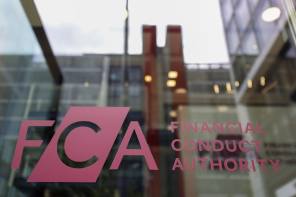

A number of cash management services — which manage a client’s cash to ensure it is held in accounts with the best market rates — have been brought to market recently, with St James’s Place being the latest firm to launch the service.
Cash management services also aim to have a maximum of £85,000 in each account meaning all the client’s money is protected by the Financial Services Compensation Scheme, which pays out a maximum of £85,000 if a bank were to go bust.
Companies that provide cash management — both advised and direct to consumer — have reported an uptick in the level of interest from investors.
Octopus Investments said Octopus Cash has been growing 8 per cent month-on-month as of August 31 alongside record interest in the firm’s adviser webinars on cash management.
Meanwhile Hargreaves Lansdown said it had about 30,000 people using the service, with just over £1bn under administration at the end of June.
According to Hargreaves, the firm’s service was “growing very nicely”.
SJP’s cash management service had also seen sustained inflows since it rolled out with a £50,000 annual minimum in August, the company said.
Paul Emery, head of division client banking at SJP, said he expected this demand to continue.
He added: “We see the choice of how much to hold in cash savings and how to get the optimal risk or return on this asset as a key part of our advisers’ holistic financial planning process with their clients.
“Cash is simply another asset class in this respect, and there has been strong demand from SJP clients for the technology-enabled solution we provide.”
Meanwhile Charlie Taylor, head of Octopus Cash, said he thought the increase in the use of cash management services was because advisers’ perceptions of cash had changed as well as consumers moving away from the persistently low interest rates from high street banks.
High street banks typically offer about 0.25 per cent on easy access cash, with different fixed rates or bonuses which can be difficult to understand, and managing multiple accounts with multiple providers is an extra burden for an adviser or a consumer.
Cash management services can offer multiple providers and products with straightforward solutions for switching banks.
Just last month (September 10) advisers backed the value of cash deposits for emergency funds and client comfort.
Joanna Leyden, director at Monument Financial, said uncertainty with regards to Brexit and scenarios such as Woodford and falling property prices meant asset backed investments were simply viewed as “too risky to hold” so consumers were moving into cash.
She added it would take a while for these consumers to regain the confidence to move out of cash.
Chartered financial planner at Rowley & Turton, Scott Gallacher, agreed, adding: “It may simply be that people are being more savvy and see these cash management services as a way of avoiding being ripped off by the banks and building societies reducing rates.
“Personally I think this is dangerous in terms of inflation eroding the real value of your wealth, which is worrying given that most people need to be growing and maintaining the real value of their wealth to help fund what could be a 30- or 40-year retirement.”
Martin Bamford, director of client education at Informed Choice, said sustained low interest rates meant investors were scrambling around for every basis they could get.
He added: “With increasingly busy lives, the ability to pass responsibility for shopping around and getting the most competitive rates is bound to become more popular.
“There’s still something incredibly reassuring about holding money in cash, despite the poor returns, negative in real terms once inflation is factored in over the longer term.”
imogen.tew@ft.com
What do you think about the issues raised by this story? Email us on fa.letters@ft.com to let us know.



